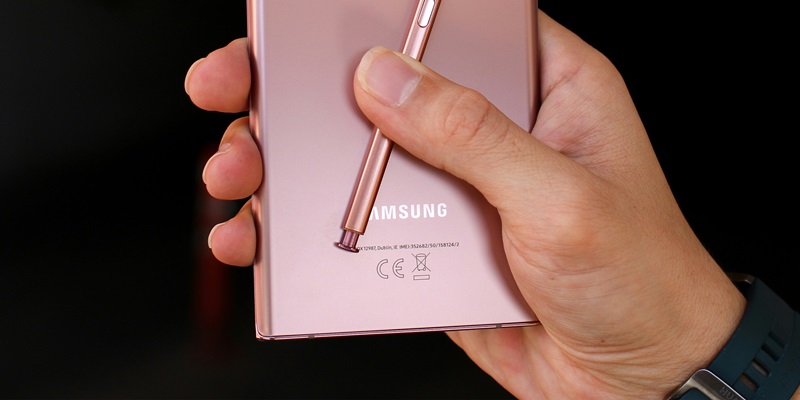Samsung is reportedly testing MediaTek SoCs for its upcoming Galaxy S25 series, a move that marks a significant departure from its previous reliance on Qualcomm and its own Exynos chips. Previously, market rumors suggested the Galaxy S25 lineup would exclusively feature Qualcomm’s Snapdragon 8 Gen 4, primarily due to difficulties in achieving satisfactory yield rates for Samsung’s Exynos 2500 chips. However, a new report suggests that Samsung is experimenting with an unnamed MediaTek chipset, likely the Dimensity 9400, for its forthcoming flagship devices.
Historically, Samsung’s flagship phones have incorporated a mix of Exynos and Snapdragon chips, with the choice often varying by region. For instance, the Galaxy S23 series used the Snapdragon 8 Gen 2 globally, deviating from the traditional regional differentiation strategy. The Galaxy S24 series saw the reintroduction of Exynos variants, but the Galaxy S25 is expected to move away from Exynos once again, primarily due to yield issues at Samsung’s foundry. This pivot underscores the evolving nature of Samsung’s supply chain decisions, driven by a combination of technical performance and economic viability.
Increasing Cost of Qualcomm Chips
Price Hikes and Economic Considerations
The cost of Qualcomm chips has been steadily increasing, a trend that has significant implications for smartphone manufacturers like Samsung. The Snapdragon 8 Gen 4 is anticipated to be more expensive than its predecessor. Analyst Ming-Chi Kuo estimates that this new chip could cost 25% to 30% more, making it less economically viable for Samsung to rely solely on Qualcomm for its flagship devices. This increase in cost is not trivial and could potentially impact the pricing strategy for Samsung’s high-end phones, compelling the company to explore more cost-effective alternatives.
MediaTek’s Dimensity chips have gained a reputation for their affordability while still offering competitive performance. The upcoming Dimensity 9400, manufactured using TSMC’s 3nm N3E process, is expected to deliver performance on par with the Snapdragon 8 Gen 4. This performance parity, coupled with the lower cost of MediaTek chips, makes them an attractive option for Samsung. By considering MediaTek’s Dimensity 9400, Samsung could potentially mitigate the financial pressures posed by Qualcomm’s pricing. This strategic exploration aligns with Samsung’s broader goal of balancing cost and performance while navigating a complex supply chain landscape.
Performance and Yield Issues with Exynos
Samsung has faced significant challenges with the yield rates of its Exynos 2500 chips, which has necessitated a reevaluation of its SoC strategy. Yield rate is a crucial factor in semiconductor manufacturing, as low yield rates can lead to higher production costs and supply chain disruptions. Samsung’s foundry has struggled to produce Exynos chips at an acceptable yield, impacting the company’s ability to rely solely on its in-house solutions for flagship devices. This issue has prompted Samsung to look for alternative SoC suppliers, further increasing the appeal of MediaTek’s offerings.
The technical performance of MediaTek’s Dimensity chips further adds to their attractiveness. The Dimensity 9400 is expected to perform comparably to the Snapdragon 8 Gen 4, offering a viable alternative without compromising on performance. This could provide Samsung with the reliability it seeks, while also addressing the financial challenges posed by the escalating costs of Qualcomm chips. As these developments unfold, the likelihood of Samsung adopting a dual-chipset strategy for its future flagship phones becomes increasingly plausible. This strategy could help Samsung navigate the complex interplay of cost, performance, and manufacturing realities more effectively.
Samsung’s Strategic Pivot
Balancing Cost and Performance
Samsung’s decision to explore MediaTek SoCs appears to be a strategic pivot aimed at balancing cost and performance while addressing supply chain constraints. The escalating costs of Qualcomm chips and the yield issues with Exynos have made it imperative for Samsung to diversify its SoC suppliers. By integrating MediaTek’s Dimensity 9400 into its flagship lineup, Samsung can potentially mitigate the economic pressures and enhance the overall performance reliability of its devices. This move reflects a broader trend of tech manufacturers navigating complex market dynamics to optimize their supply chains and maintain competitive advantage.
Despite these strategic considerations, it is important to note that all information remains speculative until Samsung makes an official announcement. However, the overarching theme suggests a cautious yet significant shift in Samsung’s approach to its flagship phone components. This potential inclusion of MediaTek chips represents a notable development, as it could fundamentally alter the landscape of Samsung’s future smartphone offerings. The company’s efforts to optimize its supply chain by balancing cost and performance metrics are indicative of a broader industry trend, emphasizing the importance of agility and strategic foresight in tech manufacturing.
Future Implications for Samsung
Samsung is reportedly testing MediaTek SoCs for the Galaxy S25 series, a notable shift from its traditional reliance on Qualcomm and its own Exynos chips. Earlier speculation suggested the Galaxy S25 lineup would exclusively use Qualcomm’s Snapdragon 8 Gen 4 due to challenges in achieving satisfactory yield rates for Samsung’s Exynos 2500 chips. However, recent reports indicate that Samsung is now experimenting with an unnamed MediaTek chipset, probably the Dimensity 9400, for its new flagship phones.
Historically, Samsung’s flagship devices have featured a mix of Exynos and Snapdragon chips, determined by regional demands. For example, the Galaxy S23 series globally utilized the Snapdragon 8 Gen 2, breaking away from its usual regional chip strategy. The Galaxy S24 series reintroduced some Exynos variants, yet the Galaxy S25 is rumored to again move away from Exynos, mainly because of yield issues at Samsung’s foundry. This highlights Samsung’s evolving supply chain strategies, influenced by both technical performance and economic factors.

